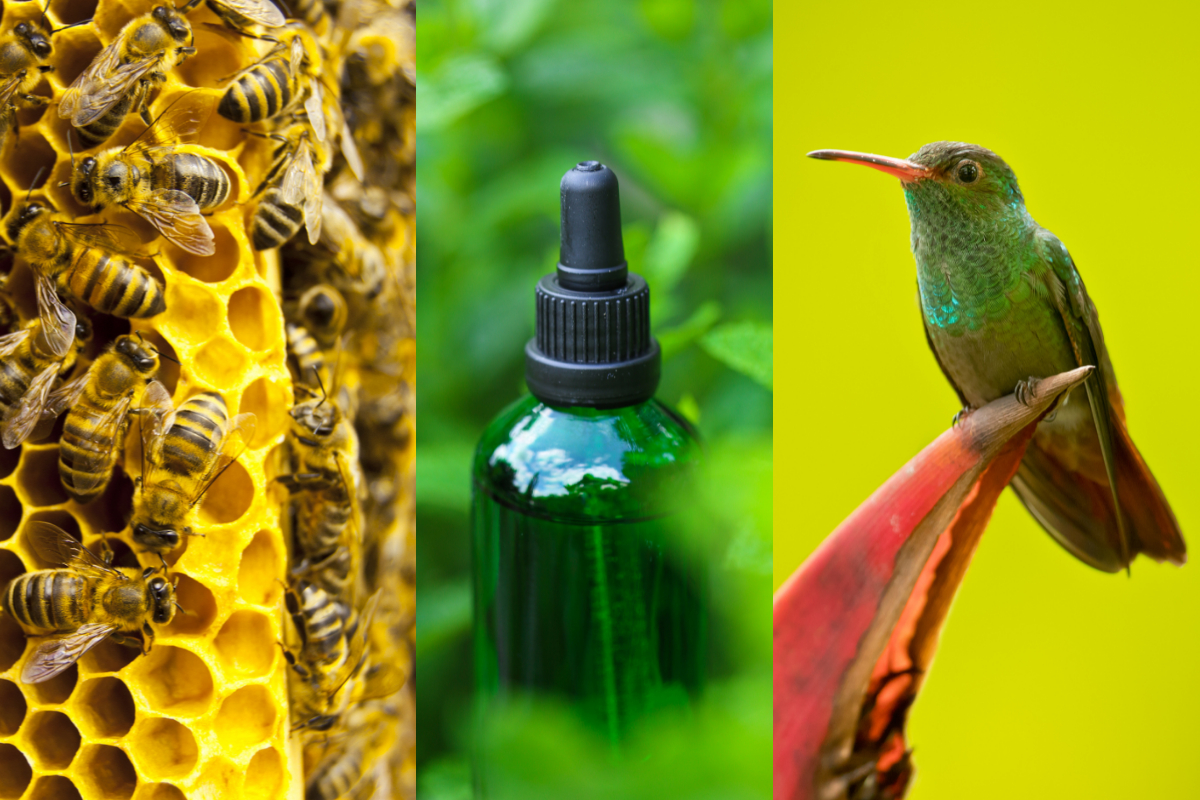As a lover of hummingbirds, it’s frustrating when bees swarm your feeders, scaring away the tiny birds – hummingbirds. You’ve probably heard peppermint oil might repel bees from hummingbird feeders.
Let’s find out if that’s a good solution to bring hummingbirds back to your feeder without worrying about bees intruding!
In this blog, we’ll explore the effectiveness of using peppermint oil to keep bees away from hummingbird feeders. We’ll cover the potential benefits and drawbacks, look at some alternative methods, and review key safety precautions for using oils around hummingbirds.
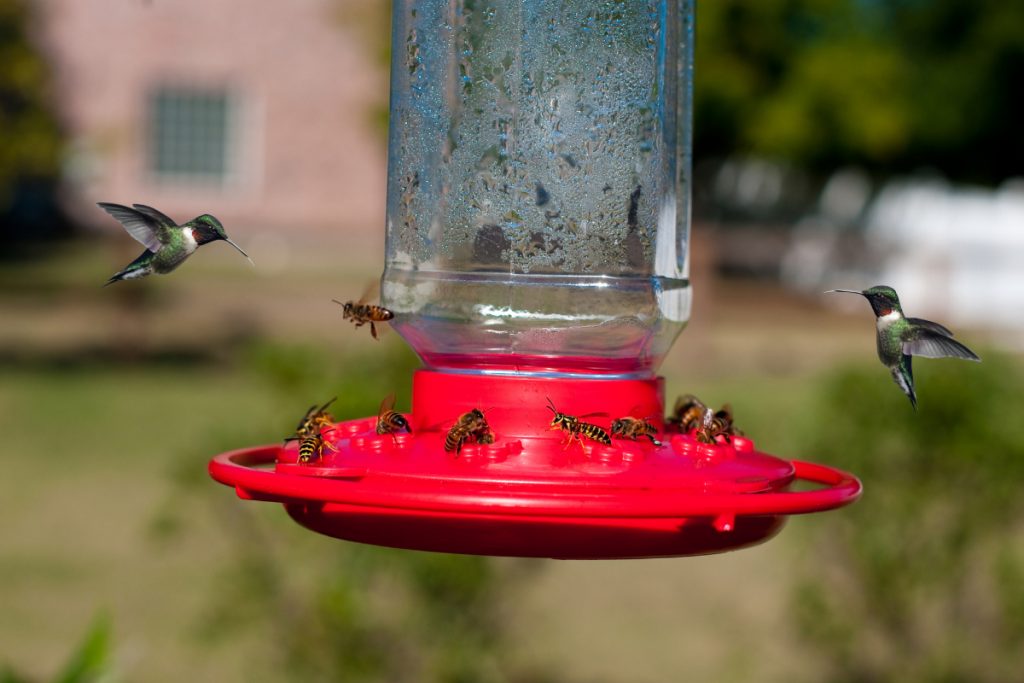
Does Peppermint Oil Keep Bees Away from Hummingbird Feeders?
Peppermint oil is not reliably effective at keeping bees away from hummingbird feeders. While it has a strong scent that some bees may find unpleasant, its effectiveness can vary greatly. Factors such as the oil’s concentration, environmental conditions, and the potential for bees to become accustomed to the smell can impact its use as a deterrent.
Alternative methods, such as using bee guards, saucer-shaped feeders, or positioning feeders away from flowers, are often more effective in preventing bees from swarming hummingbird feeders.
Related post to read: 25 Hummingbird Behaviors That You May Not Know.
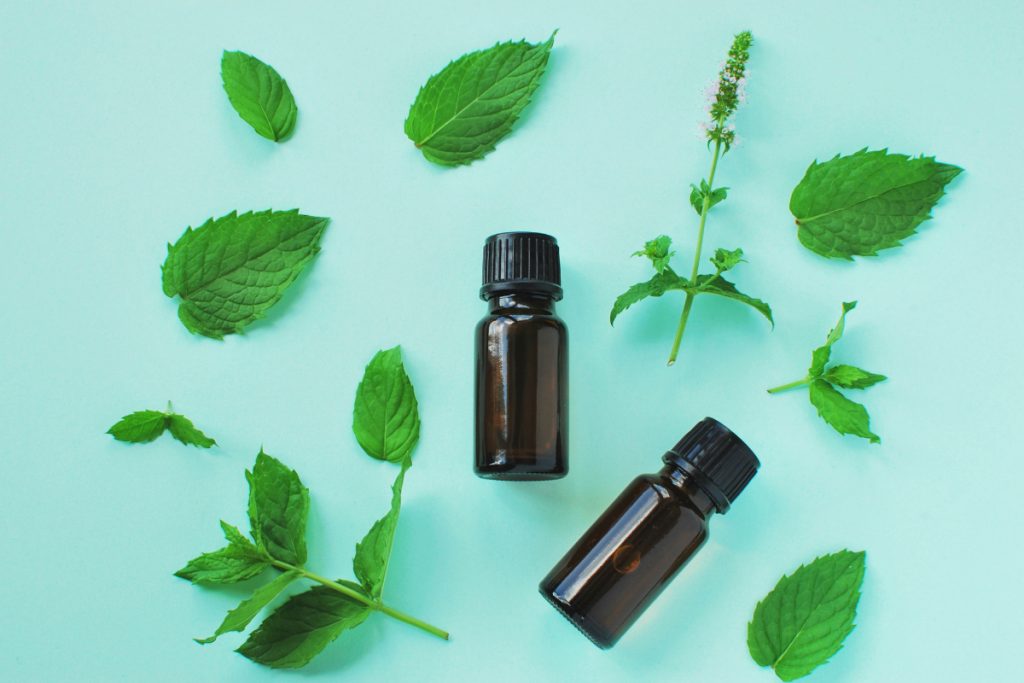
Exploring the Potential of Peppermint Oil
There are two main benefits that make peppermint oil seem promising for deterring bees:
The Strong Scent Could Repel
As earlier mentioned, peppermint has an intense minty aroma that some bees may find unpleasant or overwhelming. This scent is used by beekeepers themselves to deter hive-invading insects. So it makes sense it could also discourage bees from approaching a hummingbird feeder.
It’s Safe for Hummingbirds
Pure peppermint oil should not harm hummingbirds as long as it’s sufficiently diluted before application. So, there’s no risk to hummingbirds if used correctly.
However, there are also some potential drawbacks:
- Effectiveness may depend heavily on concentration and application method
- The scent could dissipate quickly outdoors, especially in humid or rainy conditions
- Bees could become accustomed to the smell over time.
So, while peppermint oil shows initial promise, its real-world results are mixed at best. Many claim it simply does not work reliably.
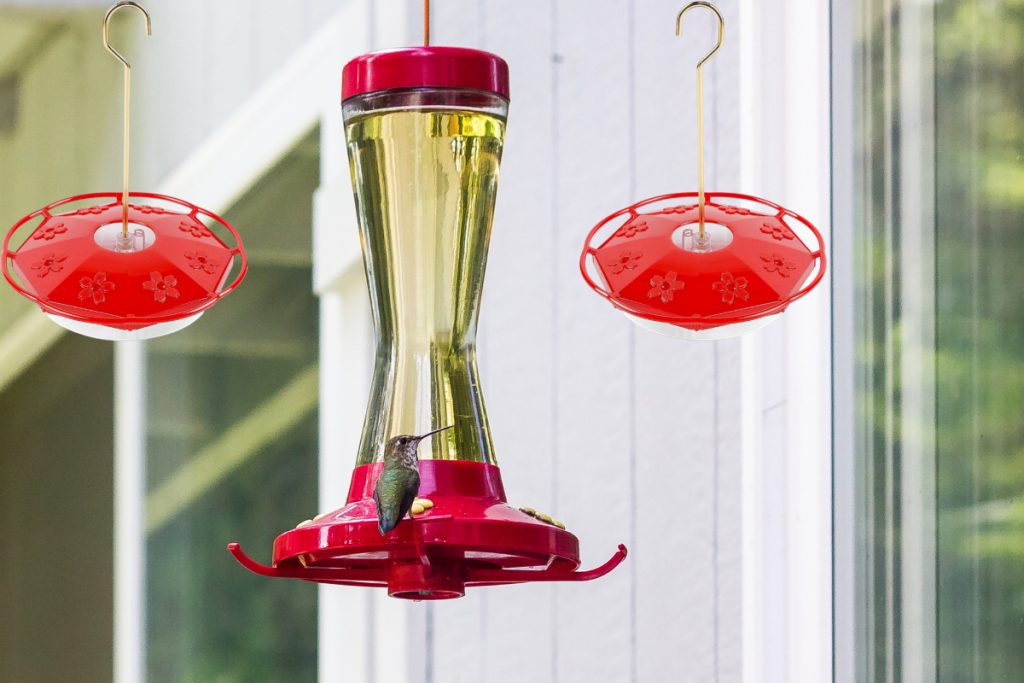
4 Alternative Methods to Deter Bees from Hummingbird Feeders
Rather than relying on oils of uncertain effectiveness, experts suggest several alternative options for deterring bees, including:
- Saucer-Shaped Feeders: These have a shallow nectar pool that makes access difficult for bees but easy for hummingbirds. The slope of the saucer allows hummingbirds to reach the ports.
- Position Away From Flowers: Locating your feeder well away from flowering plants can help minimise bee traffic in that area.
- Use Nectar Less Sweet: Some bees prefer sweeter concentrations than hummingbirds. Diluting nectar may render the feeder less enticing.
- Install a Bee Guard: Plastic bee guards or wire mesh bottoms can obstruct bees from landing on or crawling up the feeder.
Safety First When Using Oils on Hummingbird Feeder
If you are planning to use peppermint oil, it is crucial to consider the following safety measures;
- Dilute the peppermint oil with water at the appropriate ratio.
- Test on a small area first to ensure no damage or hummingbird deterrence
- Never add pure oils directly to nectar, as such ingestion could harm the hummingbirds.
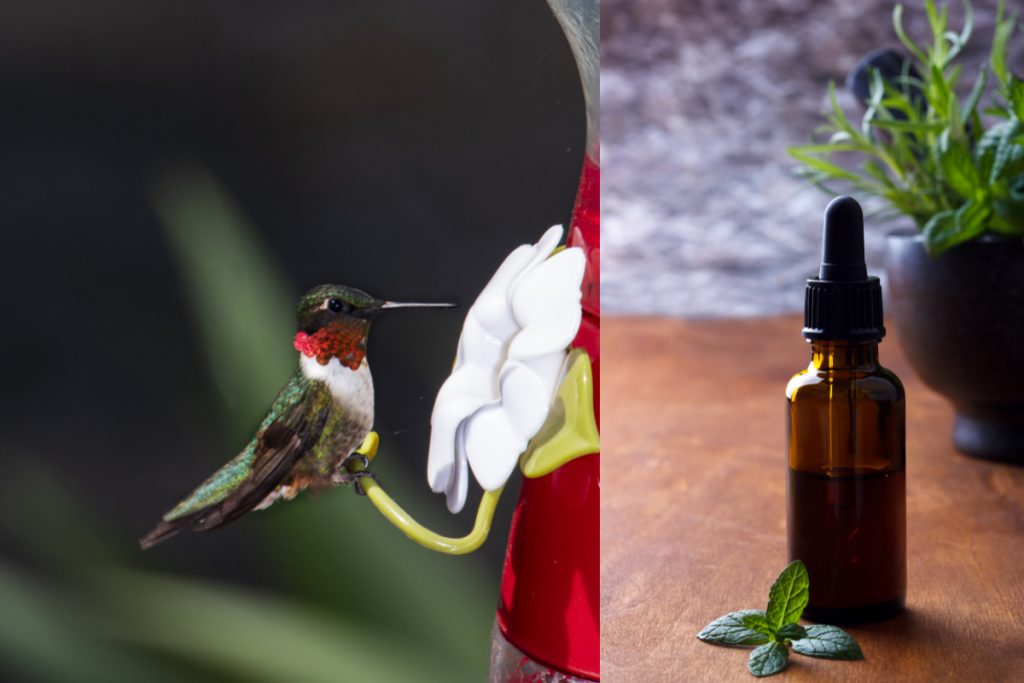
How to Use Peppermint Oil at Your Hummingbird Feeder
If you decide to try using peppermint oil to deter bees, here are some application tips:
- Purchase 100% pure peppermint essential oil. Make sure it does not contain any synthetic additives or carrier oils.
- Dilute the peppermint oil before use. A common ratio is 1 drop of oil to 10 drops of water. The diluted oil will still emit the minty scent while minimising the risk to hummingbirds.
- Apply the diluted oil directly onto the hummingbird feeder, focusing around the feeding ports. Use a small spray bottle or cotton swabs for targeted application.
- Reapply the peppermint oil every 2-3 days. The scent will fade over time, especially with exposure to air and sunlight. Frequent reapplication is key for maintaining effectiveness.
- Position cotton balls soaked with diluted peppermint oil around the feeder hanging areas. The smell should surround the feeder to discourage bees from approaching.
As we discussed earlier, while there is anecdotal evidence that peppermint oil may help repel some bees, there is no definitive scientific proof that it will fully and reliably deter bees from swarming hummingbird feeders in all situations.
As I said earlier, the effectiveness may depend on the concentration used, proper application methods, and environmental factors. Also, bees may become accustomed to the minty scent over time.
So, although peppermint oil shows some initial promise based on its strong aroma, unfortunately, there is no guarantee that it will completely prevent bees from approaching your hummingbird feeder once they locate it as an ongoing nectar source.
Final Thought
In conclusion, while peppermint oil might not be the ultimate solution to keeping bees away from hummingbird feeders, exploring different methods and understanding the nature of our garden visitors can lead to a harmonious existence.
It’s about creating a balance where hummingbirds can feed in peace, and bees can continue their essential work without stepping on each other’s toes – or wings, in this case.
So, next time you’re out in your garden, think about how you can be a gracious host to all your winged guests, ensuring a buzzing, fluttering, and harmonious ecosystem.
Now, Over To You!
What do you think; are peppermint Oil good enough to keep bees away from Hummingbird feeders? Please feel free to leave a comment in the comment section below. I’d love to hear your opinion on this.
Until next time, thanks for stopping by, and happy bird watching.
Useful Links:
Related Posts to Read:
- Do Hummingbirds Beaks Open When Feeding?
- The Mysteries of Hummingbird Flight.
- 6 Fascinating Facts About Hummingbird Sizes.
- Ruby-Throated Hummingbird Migration Map.
- Where Do Hummingbirds Go When It Rains?
- How Much Does A Hummingbird Eat Per Day?
- Do Hummingbirds Eat Wasps?
- Do Hummingbirds Eat Bees?
References:
- About Hummingbird (Link).
- Greenewalt, C. H. (1960). Hummingbirds. New York: Doubleday. Google Scholar.
- Carey C. The impacts of climate change on the annual cycles of birds. Philos Trans R Soc Lond B Biol Sci. 2009 Nov 27; 364(1534):3321-30. doi: 10.1098/rstb.2009.0182. PMID: 19833644; PMCID: PMC2781852.
- Rico-Guevara A, Rubega MA, Hurme KJ, Dudley R. Shifting Paradigms in the Mechanics of Nectar Extraction and Hummingbird Bill Morphology. Integr Org Biol. 2019 Jan 2;1(1):oby006. doi: 10.1093/iob/oby006. PMID: 33791513; PMCID: PMC7671138.
- Tyrrell LP, Goller B, Moore BA, Altshuler DL, Fernández-Juricic E. The Orientation of Visual Space from the Perspective of Hummingbirds. Front Neurosci. 2018 Jan 30;12:16. doi: 10.3389/fnins.2018.00016. PMID: 29440985; PMCID: PMC5797624.
- Hummingbirds Sighting (Journey North Map).
- About Hummingbird’s Characteristics.
